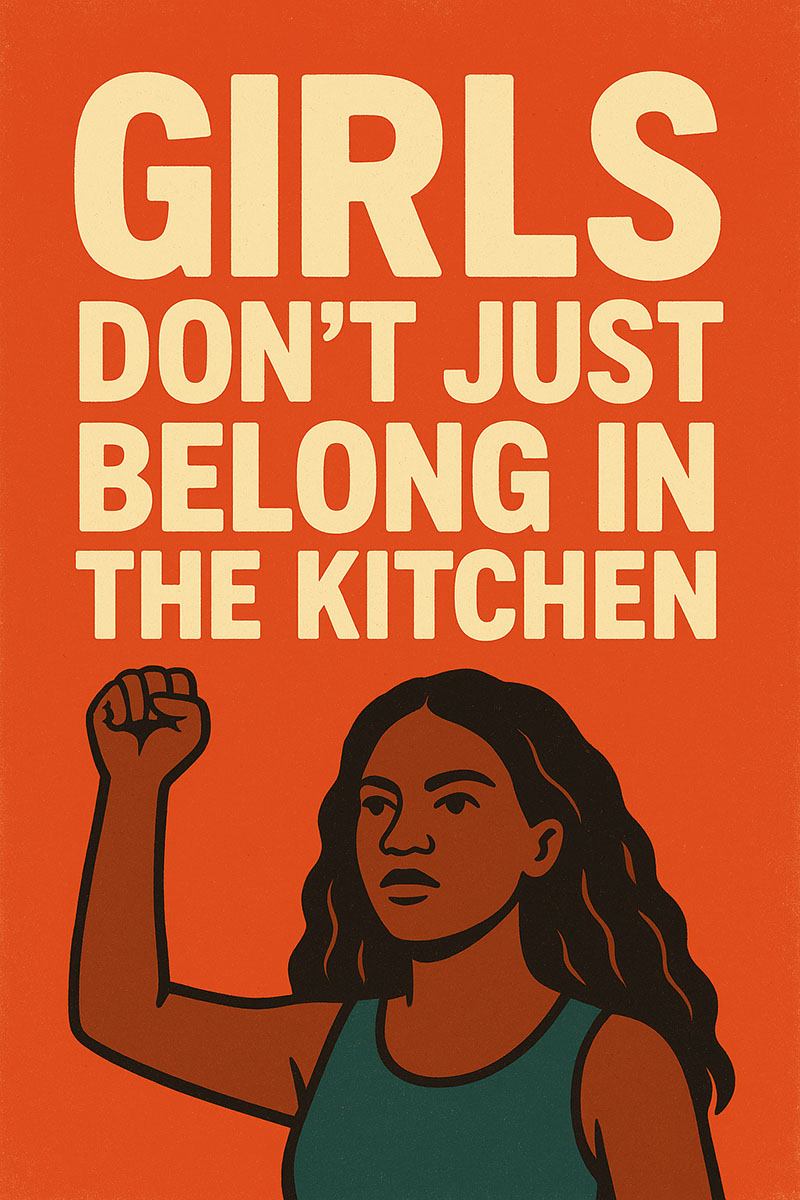
Girls Don’t Belong in the Kitchen
By Pascaliah Nyaboke – EU-YSB Kenya
“If you were part of nature today, what would you be and why? I would be a river, always moving, connecting places and people, sometimes calm, sometimes strong, but always finding a way forward. I would be a tree, standing tall, giving shade, and rooted in my community. I would be the earth, holding everyone together and carrying both the beauty and the burden. I would be a rainbow, a reminder of hope after the storm.”
These are not just words on a page. They are the voices of women who attended a learning circle held last week to discuss the intersection of girls’ rights, climate finance, and debt.
If you read the opening reflections closely, you will notice one thing: you can hear the voice of a woman in every line. Women have long been recognized as nurturers, caregivers, and helpers. While this is true, too often they give their all without asking for anything in return, yet society and nature seem to do nothing but take.
When it is time to give women something back, suddenly there is scarcity. When it’s time for the government to provide girls with quality education, suddenly there aren’t enough classrooms or teachers. When it’s time to provide women with proper sanitation and healthcare, there are not enough hospital beds, doctors, or medication. When women ask for security, they are told not to go out after dark. We take from women freely, but when it comes time to give, that’s where the line is drawn.
Girls’ Rights
The Constitution of Kenya guarantees every child’s right to education under Article 53(1)(b). What it doesn’t tell us is that the government only seems committed to upholding this right when there is no crisis. The minute floods hit, or any other disaster, girls are the first to drop out of school.
This is not to say that boys are unaffected, but the truth is: climate change disproportionately impacts girls and women.
When there’s drought, women walk for miles in search of water for cooking and cleaning, often exposing themselves to security risks. If a girl is lucky enough to remain in school, she is often too exhausted to learn.
During floods, hospitals are swamped or even swept away, making access to sanitation and healthcare nearly impossible. And yet, even then, one thing remains constant: the endless banners plastered with the faces of political leaders campaigning for votes.
Climate Finance and Debt
According to the State and Trends in Adaptation Report 2022: Adaptation Finance Flows in Africa (Global Center on Adaptation, 2022), Kenya received approximately US$2.4 billion (about KES 307.2 billion) in public and private investments for climate-related projects in 2018. However, the allocation of these funds was heavily skewed, with 78% directed toward mitigation measures such as reducing emissions, while only 12% was invested in adaptation initiatives that help communities cope with the immediate and long-term impacts of climate change. To compound the issue, much of the international public climate finance came in the form of debt, further burdening the country while prioritizing mitigation over adaptation. This imbalance not only limits Kenya’s ability to strengthen resilience against climate shocks but also reduces the resources available for critical social services like education, healthcare, and gender equality programs.
This means Kenya is receiving significant climate finance, but most of it is in the form of loans, not grants. This creates a double burden: while climate projects are funded, the debt limits Kenya’s ability to invest in essential social services such as education, healthcare, and gender equality programs that directly affect girls.
And how do governments (Kenya included) respond to this debt pressure? By raising taxes to service loans, it further squeezes citizens, especially women and girls who already bear the heaviest burdens.
Beyond the Kitchen
As we prepare for COP30 and other global policy spaces, we must ensure that girls and young women are present, not just as flower girls to decorate panels, but as powerful voices, decision-makers, and leaders whose perspectives shape climate financing policies.
Because truly, girls don’t just belong in the kitchen. They belong in every room where policies are written, resources are allocated, and futures are decided.
